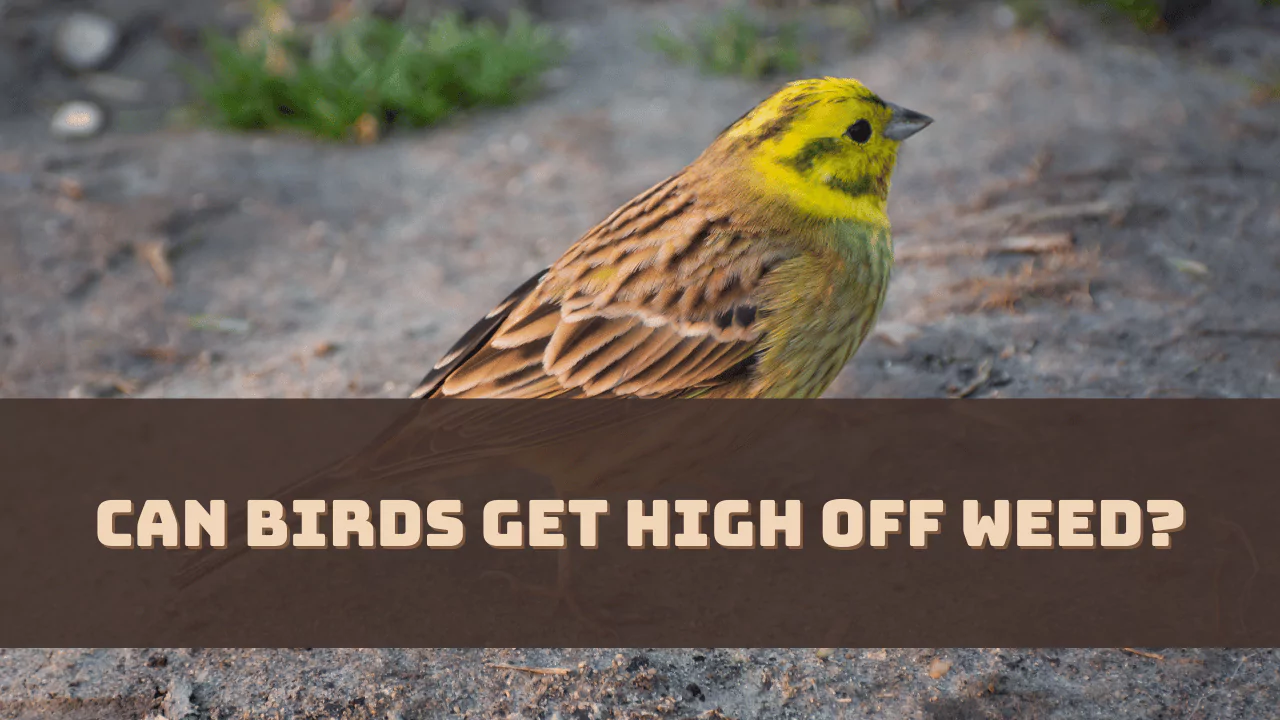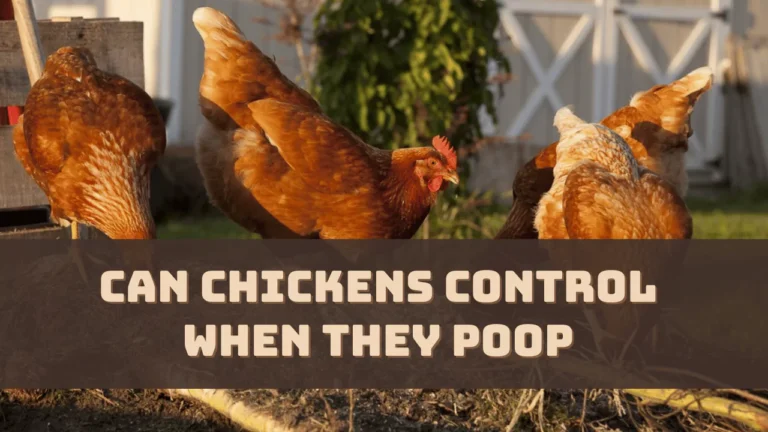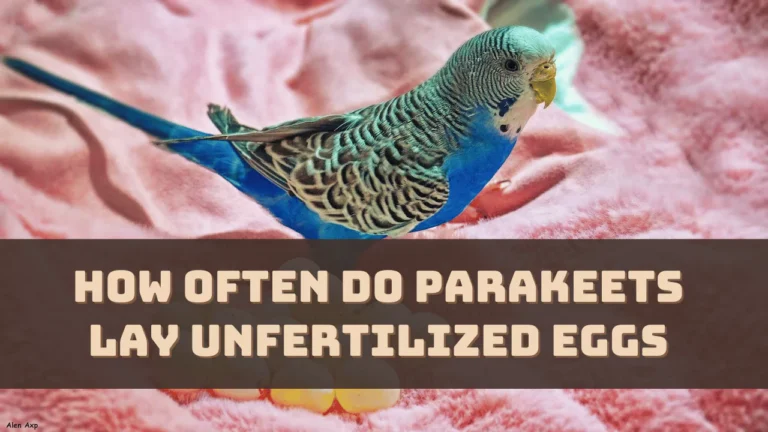Yes, technically speaking birds can get high as they possess the cannabinoid receptor in their brain. Getting high indicates a feeling of intense pleasure and euphoria, which is caused by the intake of certain weeds infused with cannabis. If birds show the effect of the drugs given to them, then they would surely feel the effect of weed or any marijuana-infused product.
There is evidence that birds face a devastating impact on their nervous and respiratory systems due to anecdotal intake, however, these are not backed by any scientific evidence. It has been reported that when birds get high they pluck their feathers, have difficulty in breathing and they also expose the breastbone.
So, let’s dive into the details and get to know what to do if a bird gets high.
How do Birds Come in Contact with Weed?
Birds may come in contact with weed after eating a type of plant that contains THC, which is also an active ingredient of marijuana, or after eating insects that have come in contact with a sedative drug. Birds can also ingest weed after consuming leftover products that contain marijuana.
Does Ingestion of Weed Have Any Negative Effect on Birds?
Yes, if a bird is consuming weed for a long term, then it can affect their nervous system which can lead to seizures and other health problems. They can even become aggressive and show signs of long-term paranoia due to their physiology and small size.
Long-term exposure results in sinus infection, coughing, bacterial infection, sneezing, and also chronic respiratory disease. They also suffer from difficulty flying, poor coordination, and fatigue. It might also be seen to move here and there in search of food but not eating anything
You may also find that the eyes are constricted and they have difficulty keeping a balance while standing. They might be seen sitting in one place, content in itself and not going anywhere.
What to Do If a Bird Ingest Weed?
A bird with weed intoxication must be taken to the veterinary and treatment should start immediately otherwise it can prove to be fatal for the bird. The basic symptoms to identify THC toxicity in birds are – pupils appear to be dilated, the body might become unsteady or wobbly, they might also appear to be lethargic or unresponsive, shivering, and unusual vocalization can also be heard.
Are Birds More Vulnerable to Inhalation of Weed Smoke Compared to Humans?
Yes, birds are more sensitive to marijuana smoke, due to their more efficient respiratory system, when compared to humans. Birds are also more susceptible to drugs and toxins since they have a smaller body mass. Also, birds have a faster rate of breathing, so they experience a higher toxicity. Birds have a good respiratory system, so they are more prone to airborne toxins.
Birds also have a higher body surface-to-body mass ratio, making the absorption process quicker and more rapid. Thus, even if the bird inhales or ingests weed in small amounts the effect is shown instantly. Also, the smaller lung size makes the birds more sensitive to cannabis.
In the case of Parakeets, the breathing system makes it more vulnerable to getting high. When a parakeet breathes, the air inhaled moves to the posterior air sac and when exhaled, the air moves to the lungs and goes through another cycle, before the body releases it. Thus, the inhaled toxic remains in the body of the bird longer when compared to humans, causing a serious impact.
How to Ensure the Bird Does not Get High?
You need to keep a close eye on the bird and check its intake habits. However, this is not possible for the birds that live in the wild. If you are a bird parent, then keep aside or out of reach from the bird, all the products that have THC in them. If you are smoking weed, then you must ensure that the bird is not in the same room. Keep the bird in a separate and well-ventilated space. If the bird gets exposed to marijuana smoke, then you must immediately seek veterinary help.
Can Birds Show Addictive Behavior Towards Nicotine?
Yes, birds are tested to show addictive behavior towards certain substances and it also includes nicotine. Usually, birds are sensitive to sugar and caffeine, but whatever the substance is, any kind of addiction can prove to be fatal for the bird. Nicotine has an adverse effect on the health of the birds and also their well-being.
What is Anting?
In specific scientific journals, it has been stated that birds apparently rub ants on themselves to get high and this is a form of anointing themselves, using the formic acid released by the ants on the birds, which tones the muscles. In this process, the bird picks up many ants in their beak and starts rubbing them under the wings, and against this action, the ants start releasing formic acid.
Eventually, the formic acid gets absorbed into the body of the bird. The result is that – Birds are seen dancing with the wings stretched and the break remains wide open.
If you want to know why birds use ants, then the answer is – they clean their feathers and get rid of the bacteria in the feathers using the formic acid from the ant. This process also helps the birds to protect their feathers from fungal infection. Also, the formic acid the ants release creates a soothing or pleasurable effect on the skin. This action has been recorded among many bird species, most among Blue Jays, common starlings, mockingbirds, crows, and also in ravens.
Which other Animals can Get High?
Elephants are also seen to get high after having the marula fruit. In the African myth, it has been mentioned that the marula fruit when fermented has the capability to intoxicate animals, even large mammals such as elephants. The prominent sign seen among elephants upon getting high is being tipsy.
Wallabies also get high and are seen to fall around or hop around in circles after having opium. They can even become disoriented or lose the ability to find food and water. Moreover, the sign of getting high due to weed is also seen among dogs and cats.


![Can Ducks Have Celery? [Explained] 7 Can Ducks Have Celery](https://masterbirds.com/wp-content/uploads/2024/02/can-ducks-have-celery-768x432.webp)

